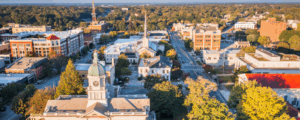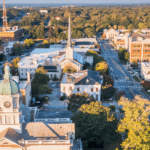 Georgia’s economy has slowly inched toward recovery since the state’s unemployment rate peaked in February 2010. More than three years since the official end of the economic crisis, Georgia has recovered just two-thirds of the jobs lost during the downturn.
Georgia’s economy has slowly inched toward recovery since the state’s unemployment rate peaked in February 2010. More than three years since the official end of the economic crisis, Georgia has recovered just two-thirds of the jobs lost during the downturn.
Meanwhile, poverty in Georgia is worse since the beginning of the recovery. More than 19 percent of Georgians, or 1.8 million adults and children, lived in poverty in 2012, according to the most recent U.S. Census figures. Georgia is now the sixth poorest state in the nation. As more Georgians became poor, pathways to exit poverty are increasingly blocked as the state fails to make strategic investments when needed.
The Georgia Budget and Policy Institute’s latest report, “Recovery or Bust: Georgia’s Poor Left Behind,” analyzes Census data to identify Georgia’s poor and show where they live. The report also compiles research from national nonprofit think tanks and other organizations to paint a picture of the challenges that Georgia’s poor families face.
Among the report’s findings:
- Georgia ranks as the sixth worst state for child poverty. Child poverty rose to 27.2 percent in 2012, up from 24.8 percent in 2010.
- Lagging educational opportunities and achievement among poor children and adults reinforce the cycle of poverty. Academic performance of low-income children in grades K-12 continues to lag behind their more affluent peers. This cycle carries into higher education where the majority of Georgians not in poverty have some form of post-secondary education and the majority of poor Georgians do not.
- A rise in lower-quality jobs contributed to the rise in poverty since 2010. About 123,000 Georgians age 16 to 64 live in poverty, even though they work full time. Since 2010, the number of these poor full-time workers increased by more than 20 percent.
This comprehensive examination of what it means to be poor in Georgia knits together data from GBPI’s varied policy areas (economic development, economic mobility, education, and health care) to assess the multiple challenges Georgia’s poor face. Thanks to my colleagues on the GBPI team of policy analysts for their valuable insights and expertise.








